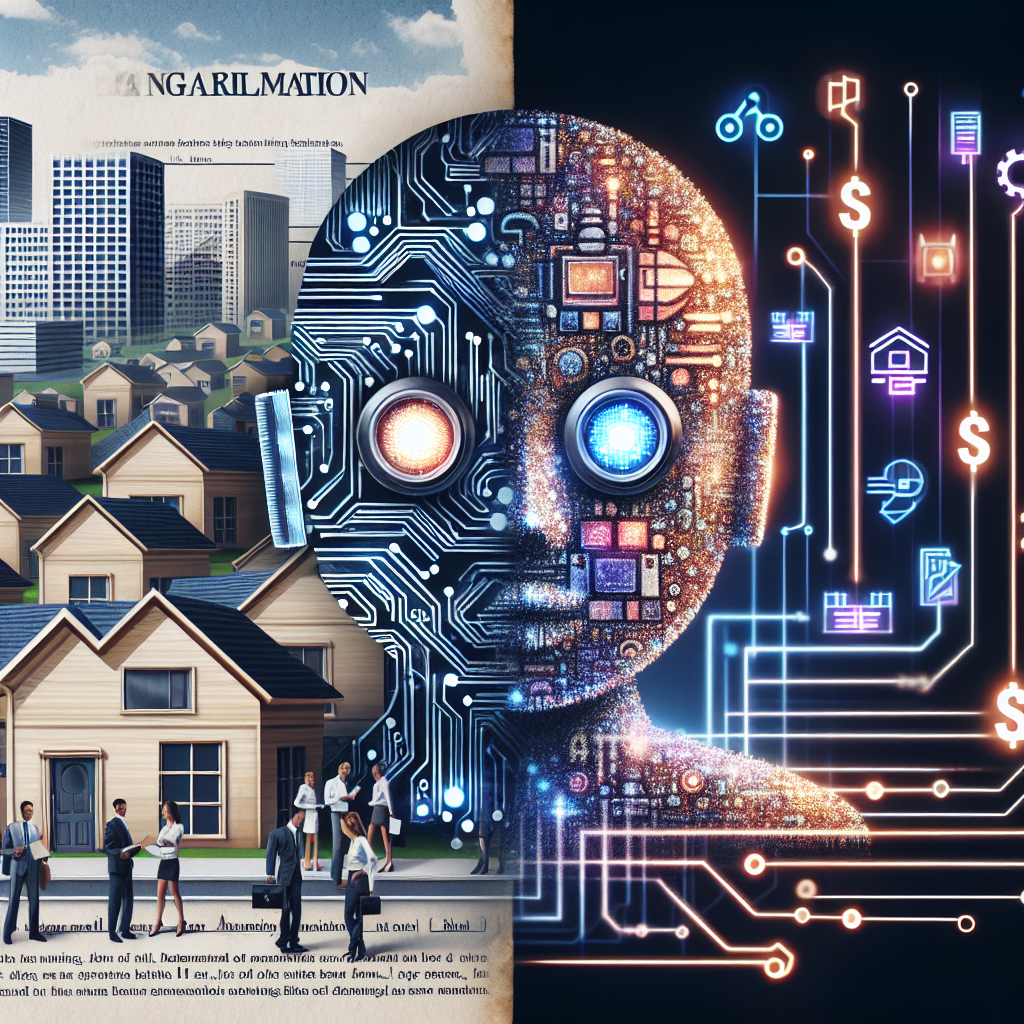Artificial Intelligence (AI) has been transforming various industries, and real estate financing is no exception. With the use of AI technology, lenders and borrowers are able to streamline the financing process, increase efficiency, and make more informed decisions. In this article, we will explore how AI is enhancing real estate financing and its impact on the industry.
One of the key ways AI is revolutionizing real estate financing is through the automation of underwriting processes. Traditionally, underwriting involved a time-consuming and manual process where lenders would analyze a borrower’s financial information, credit history, and other factors to determine their creditworthiness. With AI, this process can be automated, allowing lenders to quickly evaluate a borrower’s financial profile and make faster lending decisions. This not only speeds up the financing process but also reduces the risk of human error.
AI is also being used to improve risk assessment in real estate financing. By analyzing vast amounts of data, AI algorithms can identify patterns and trends that may not be apparent to human underwriters. This helps lenders assess the risk associated with a particular loan more accurately and make more informed decisions about whether to approve or deny financing. This enhanced risk assessment can ultimately lead to lower default rates and increased profitability for lenders.
Another way AI is enhancing real estate financing is through the use of predictive analytics. By analyzing historical data and market trends, AI algorithms can predict future real estate market conditions and help lenders make more informed decisions about lending. This can help lenders identify potential risks and opportunities in the market, allowing them to adjust their lending strategies accordingly. Additionally, predictive analytics can help borrowers better understand their financing options and make more informed decisions about their real estate investments.
AI is also being used to improve customer service in real estate financing. Chatbots powered by AI technology can provide borrowers with instant answers to their questions, guide them through the financing process, and even help them compare different loan options. This not only improves the borrower experience but also allows lenders to provide more personalized and efficient service to their clients.
In addition to improving efficiency and decision-making, AI is also helping to reduce bias in real estate financing. Traditional lending practices have been criticized for being biased against certain groups, such as minorities and low-income borrowers. By using AI algorithms to analyze data objectively, lenders can reduce the risk of bias in their lending decisions and ensure that all borrowers are treated fairly.
Overall, AI is revolutionizing real estate financing by improving efficiency, decision-making, risk assessment, customer service, and reducing bias. As AI technology continues to advance, we can expect to see even more innovations in the real estate financing industry that will benefit both lenders and borrowers.
Frequently Asked Questions (FAQs):
1. How is AI being used in real estate financing?
AI is being used in real estate financing to automate underwriting processes, improve risk assessment, use predictive analytics, enhance customer service, and reduce bias in lending decisions.
2. What are the benefits of using AI in real estate financing?
The benefits of using AI in real estate financing include increased efficiency, faster lending decisions, more accurate risk assessment, better customer service, and reduced bias in lending decisions.
3. How does AI improve risk assessment in real estate financing?
AI improves risk assessment in real estate financing by analyzing vast amounts of data to identify patterns and trends that may not be apparent to human underwriters. This helps lenders assess the risk associated with a particular loan more accurately and make more informed decisions about lending.
4. How does AI reduce bias in real estate financing?
AI reduces bias in real estate financing by analyzing data objectively and making lending decisions based on data-driven algorithms rather than human judgment. This helps ensure that all borrowers are treated fairly and that lending decisions are made without bias.
5. What are some examples of AI technology being used in real estate financing?
Some examples of AI technology being used in real estate financing include chatbots that provide instant customer service, algorithms that automate underwriting processes, predictive analytics that help lenders make informed decisions, and data analysis tools that improve risk assessment.
In conclusion, AI is transforming real estate financing by improving efficiency, decision-making, risk assessment, customer service, and reducing bias. As AI technology continues to advance, we can expect to see even more innovations in the real estate financing industry that will benefit both lenders and borrowers.

